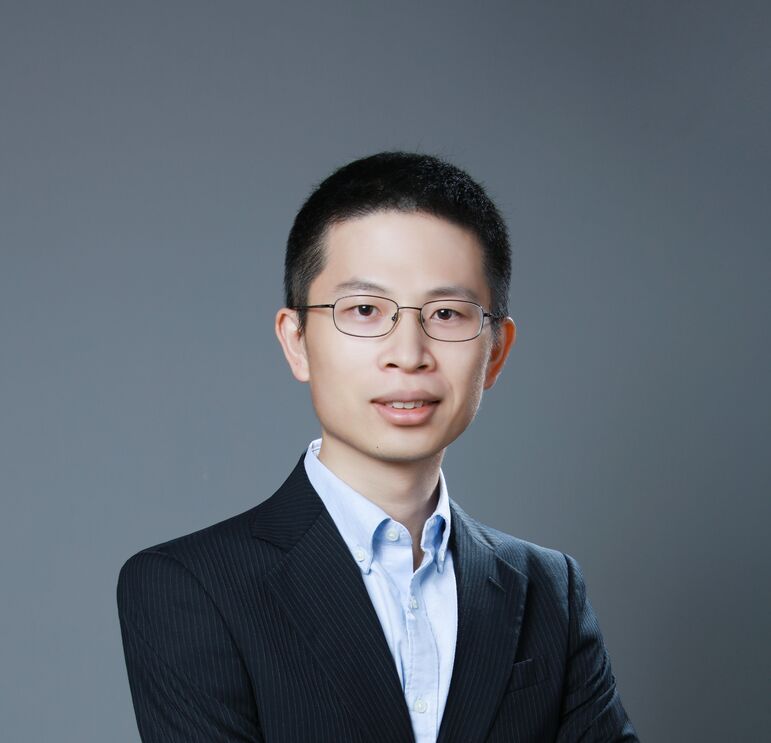Biography
Dr. Xiaojie Yu is currently assistant professor of the School of Life Sciences at Westlake University. Dr. Yu received his B.Sc in Biochemistry from Imperial College London in 2010, and a PhD in Biochemistry from the University of Oxford in 2013. He then underwent postdoctoral training at the University of Toronto/St Michael’s Hospital exploring antibody therapeutics to treat autoimmune diseases. In 2016, he returned to the UK to continue postdoctoral training in antibody-based cancer immunotherapy at the University of Southampton. In September 2022, Dr. Yu joined Westlake University as assistant professor.
Research
Monoclonal antibody (mAb) therapeutics, including direct-targeting mAb (target tumor cells) and immunomodulatory mAb (target immune cells), have become routine treatment for cancer. Most notably, immune checkpoint inhibitor (ICI) mAb targeting PD-1, PD-L1, CTLA-4 and Lag-3 have revolutionized cancer treatment because they induce long-lasting remission and lead to complete cures; however, the majority of patients are resistant to ICI. Agonistic immunostimulatory (IS) mAb represent a promising class of antibody to overcome ICI resistance by activating the immune costimulatory receptors such as CD40, 4-1BB and OX40 that belong to the TNF receptor family. Dr. Yu’s research encompasses antibody engineering for improved treatment of autoimmunity and cancer. His current work is focused on optimising IS mAb for cancer immunotherapy. Using CD40 as a paradigm, he showed that the agonistic activity of anti-CD40 mAb is dictated by the antibody epitope, isotype and affinity. For example, mAb targeting the membrane-distal CRD1 domain of CD40 are more agonistic than those targeting the membrane-proximal domains. Moreover, the human IgG2 isotype is able to confer super-agonistic activity and convert anti-CD40 antagonist into agonist to deliver potent antitumor activity. He also revealed that at the molecular level, a higher TNF receptor density rather than larger cluster size correlates with greater activity.
Therapeutically, although IS mAb have demonstrated significant antitumor activity in preclinical models and favorable pharmacodynamics in patients, the lack of objective responses remains a major challenge. Dr. Yu’s lab is currently trying to understand this discrepancy by investigating the resistance mechanism associated with IS mAb. Using CD40 as a paradigm, the project combines antibody engineering, mouse tumor model and bioinformatics to detail the immune profile within the tumor microenvironment and search for biomarkers associated with therapeutic resistance. Mechanistic insights from the study will be used to design novel therapy involving combination with other mAbs and/or small molecules. In addition to IS mAb, the group is also interested in using antibody Fc engineering to improve direct-targeting and ICI mAb therapies. Current projects include dissecting the requirement of Fc-FcγR engagement in the antitumor activity of anti-Lag-3 mAb.
Representative Publications
Yu, X., Orr, C., Chan, H., James, S., Penfold, C., Kim, J., Inzhelevskaya, T., Mockridge, C., Cox, K., Essex, J., Tews, I., Glennie, M., Cragg, M. (2023) Reducing affinity as a strategy to boost immunomodulatory antibody agonism. Nature. 2023 Feb; 614 (539–547).
Yu, X., James, S., Felce, J., Kellermayer, B., Johnston, D., Chan, H., Penfold, C., Kim, J., Inzhelevskaya, T., Mockridge, C., Watanabe, Y., Crispin, M., French, R., Duriez, P., Douglas, L., Glennie, M., Cragg, M. (2021) TNF receptor agonists induce distinct receptor clusters to mediate differential agonistic activity. Communications Biology. 2021 Jun 23;4(1):772. doi: 10.1038/s42003-021-02309-5.
Yu, X., Chan, H., Fisher, H., Penfold, C., Kim, J., Inzhelevskaya, T., Mockridge, C., French, R., Duriez, P., Douglas, L., English, V., Verbeek, J., White, A., Tews, I., Glennie, M., Cragg, M. (2020) Isotype Switching Converts Anti-CD40 Antagonism to Agonism to Elicit Potent Antitumor Activity. Cancer Cell. 2020 Jun; 37(6):850-866.
Yu, X., Chan, H., Orr, C., Dadas, O., Booth, S., Dahal, L., Penfold, C., O'Brien, L., Mockridge, C., French, R., Duriez, P., Douglas, L., Pearson, A., Cragg, M., Tews, I., Glennie, M., White, A. (2018) Complex Interplay between Epitope Specificity and Isotype Dictates the Biological Activity of Anti-human CD40 Antibodies. Cancer Cell. 2018 Apr; 33(4):664-675.
Yu, X., Menard, M., Prechl, J., Bhakta, V., Sheffield, W., Lazarus, A. (2016) Monovalent Fc receptor blockade by an anti-Fcγ receptor-albumin fusion protein ameliorates murine ITP with abrogated toxicity. Blood. 2016 Jan; 127(1):132-8.
Yu, X., Menard, M., Seabright, G., Crispin, M., Lazarus, A. (2015) A monoclonal antibody with anti-D like activity in murine ITP requires Fc domain function for ITP ameliorative effects. Transfusion. 2015 Jun; 55(6):1501-11.
Yu, X., Baruah, K., Harvey, D. J., Vasiljevic. S., Alonzi, D.S., Song, B. D., Higgins, M. K., Bowden, T. A., Scanlan, C.N., Crispin, M. Engineering hydrophobic protein–carbohydrate interactions to fine-tune monoclonal antibodies. J Am Chem Soc. 2013 Jul 3;135(26):9723-32.
Yu, X., Vasiljevic, S., Mitchell, D. A., Crispin, M. & Scanlan, C. N. Dissecting the molecular mechanism of IVIg therapy: the interaction between serum IgG and DC-SIGN is independent of antibody glycoform or Fc domain. J Mol Biol. 2013 Apr 26;425(8):1253-8.
Contact Us
We welcome students and postdoctoral researchers interested in antibody therapeutics to apply to join our lab!
